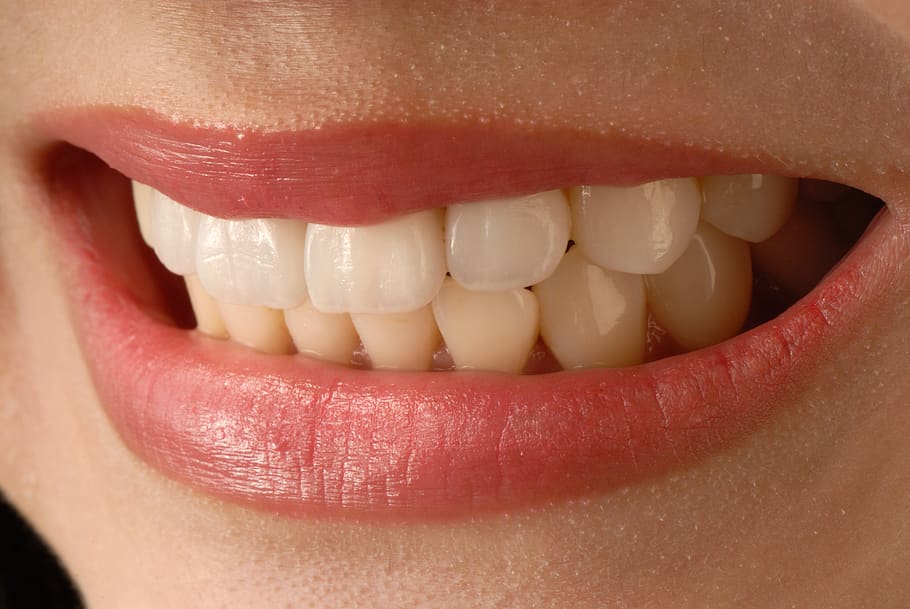Bruxism, the condition in which you grind your teeth together, can cause excessive wear on teeth that leads to tooth pain or sensitivity. Additionally, this condition can also lead to temporomandibular joint (TMJ). While most teeth grinding occurs when an individual is asleep, some people will grind their teeth even when they are awake.Some medical disorders such as Parkinson’s Disease, sleep apnea, and attention deficit hyperactivity disorder (ADHD) are sometimes accompanies by signs of bruxism.
The side effects of bruxism can damage your oral health. If you believe you may be grinding your teeth speak with you dentist.
Signs That You May Be Grinding Your Teeth
Jaw Pain, Headaches, and Neck Discomfort: While grinding your teeth my not be the only cause for a headache or neck discomfort, it can be a sign of grinding your teeth when accompanied by jaw pain. This is especially the case for individuals experiencing these symptoms soon after they wake up. This is due to hours of teeth grinding in your sleep. This kind of carried action will cause lasting aches and pains. If you wakeup and are experiencing temple pain, you should speak with your dentist about getting a night guard to help protect your teeth at night.
Worn Down Enamel: Grinding your teeth causes their protective enamel to wear down, often flattening the chewing surfaces of your teeth. This is easy for your dentist to identify when examining your mouth. The treatment of your teeth will depend on the severity of wear on your teeth. Dental crowns can be a good option if the enamel is too far gone to restore.
Sensitive Bite: Prolonged teeth grinding can leave your mouth sensitive to cold temperatures or make it difficult to bite. Not only does grinding lead to an overall flattening of your teeth, it also can lead to chips that expose the highly sensitive dentin inside of them. Tell your dentist if you experience a sudden increase in sensitivity.
What Can I Do to Stop Grinding My Teeth?
Your dentist can fit you with a mouth guard to protect your teeth from grinding during sleep. Learn more: Can a night guard straighten your teeth?
If stress is causing you to grind your teeth, ask your doctor or dentist about options to reduce your stress. Attending stress counseling, starting an exercise program, seeing a physical therapist, or obtaining a prescription for muscle relaxants are among some of the options that may be offered.
If a sleeping disorder is causing the grinding, treating it may reduce or eliminate the grinding habit.
Other tips to help you stop teeth grinding include:
- Avoid or cut back on foods and drinks that contain caffeine, such as colas, chocolate, and coffee.
- Avoid alcohol. Grinding tends to intensify after alcohol consumption.
- Do not chew on pencils or pens or anything that is not food. Avoid chewing gum as it allows your jaw muscles to get more used to clenching and makes you more likely to grind your teeth.
- Train yourself not to clench or grind your teeth. If you notice that you clench or grind during the day, position the tip of your tongue between your teeth. This practice trains your jaw muscles to relax.
- Relax your jaw muscles at night by holding a warm washcloth against your cheek in front of your earlobe.
These factors increase your risk of bruxism:
- Stress. Increased anxiety or stress can lead to teeth grinding. So can anger and frustration.
- Age. Bruxism is common in young children, but it usually goes away by adulthood.
- Personality type. Having a personality type that’s aggressive, competitive or hyperactive can increase your risk of bruxism.
- Medications and other substances. Bruxism may be an uncommon side effect of some psychiatric medications, such as certain antidepressants. Smoking tobacco, drinking caffeinated beverages or alcohol, or using recreational drugs may increase the risk of bruxism.
- Family members with bruxism. Sleep bruxism tends to occur in families. If you have bruxism, other members of your family also may have bruxism or a history of it.
If you think you may be grinding your teeth, schedule an appointment to have your teeth examined with one of our dentists.
Call Our Baytown Office Today
Many people grind or clench their teeth as they sleep, which can cause damage in the short and long-term. Our dentists, Dr. Brian L. Porter or Dr. Kelley Joo, can see you for a night guard in Baytown, Texas, to help you keep your teeth safe from clenching. Give Brian L. Porter, DDS a call at 281-422-3415 today for more information.
Brian L. Porter, DDS
1109 E. James Ave.
Baytown, TX 77520
281-422-3415
View our Google Business Listing

